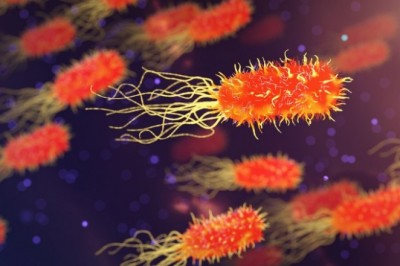
In today’s busy world, it is not uncommon for people to feel tired sometimes. Fatigue is not an illness, but it should not be taken lightly. It does not only affect your performance at work or in school and make it more difficult for you to carry out your daily responsibilities; it can also increase your risk of injuries and other health problems.
It can also be an indication that you are suffering from certain illnesses or disorders. As such, it is essential that you take effective measures to manage your excessive tiredness.
Common Causes of Tiredness
Lack of sleep - Work duties, major life events, and worries can cause you to lose sleep. Sleep is a very important activity because it gives the cells in your body an opportunity to repair themselves. If you do not get enough sleep, your body and mind will become tired, and you will not be able to perform your daily duties effectively.
Jet lag - Jet lag happens when your body needs to adjust to a different time zone. It usually occurs when you are traveling long distance on an airplane. It can make you feel extremely tired, moody, and irritable. The greater the time change, the more tired you will feel.
Stress
Stress can drain you physically, mentally, and emotionally. It can cause you to feel fatigued throughout the day, even if you have slept well the night before.
Heavy workload - Under normal circumstances, you should be able to handle your job with relative ease. However, your workload can get heavy sometimes, and you have to work much harder to complete your tasks. It is during these times that you will feel really sleepy. Taking proper breaks at work, can help you to work more efficiently and can improve productivity, extra hours does not always make you more productive.
Depression or anxiety
Mental and emotional disorders, such as depression and anxiety, can also lead to feeling overly tired. They can cause you to lose sleep at night and make you feel sluggish and exhausted.
Recovering from illness
It is normal to feel tired when you are recovering from an illness or injury. You will feel drowsy and fatigued because your body needs a lot of energy to heal.
Alcohol or drug withdrawal
It is also common for people to feel tired when they are withdrawing from alcohol or drug addiction. This is because their bodies need to use energy to remove alcohol or drug-related toxins. Even if you are not drinking too much, try cutting down, or only drinking at the weekend, you can have just as much fun but with less impact to your body.
Anemia - Anemia refers to an insufficiency of red blood cells in the body. Red blood cells serve the important function of facilitating the circulation of oxygen throughout the body. Excessive tiredness is one of the main symptoms of this condition
Symptoms of Excessive Tiredness
Trouble getting out of bed - If you are oversleeping or pressing the snooze button more often than you should, it is likely that you are experiencing excessive tiredness.
Struggling with daily tasks – Excessive tiredness can make you feel drowsy during the day, and it can affect your ability to perform daily activities such as working and driving. If you are overtired, you will find yourself struggling to get through the day.
Feeling the need to take a break – When you are feeling fatigued, you will have a constant desire to take a break from your present situation. You may find yourself thinking about skipping work sometimes or going on a vacation.
Change in your appetite – People who are experiencing fatigue have the tendency to change the amounts of food they consume every day. Eating less or more than usual is a sign that you are fatigued.
Irritability – Another thing that fatigue can do to you is make you oversensitive and irritable. When you are tried, you will become less patient towards other people, and you may lose your temper more often.
Muscular weakness – Your muscles will become weaker when you are fatigued, making it more difficult for you to perform physically-demanding tasks.
Loss of concentration – can also weaken you mentally. It can make you lose the mental strength you need to overcome distractions and focus your mind on your work or other tasks.
Loss of short-term memory – Your mind becomes lazy when you are tired, and this can cause to you to experience short-term memory loss.
Cold-like symptoms – Fatigue can also weaken your immune system, making you more vulnerable to cold-like symptoms, such as coughing, sneezing, and runny nose.
Tips for Managing Fatigue
Establish a sleep schedule – Establishing a sleep routine can help you eliminate excessive tiredness because it ensures that your body will get enough rest. Try to sleep and wake up at the same times every day. Sleep is very important to health, sometimes if your room is not dark enough, you can wake up too early, try changing your curtains to thicker and darker ones, that can help get better sleep also.
Take naps
When you are feeling excessively tired during the day, you can take a nap for 10 or 20 minutes.
Exercise
Exercise improves the circulation of oxygen in your body and raises your energy levels. It can also help you sleep better at night.
Green leafy vegetables
Green leafy vegetables contain high amounts of energy-boosting nutrients, such as antioxidants, vitamins, and minerals. They can also improve your mood.
Vitamin B12
Vitamin B12 is known for its excellent energy-boosting qualities. In fact, vitamin B12 deficiency is a common cause of excessive tiredness.
Vitamin C
Many doctors recommend their patients to consume more vitamin C, because it can increase energy levels. Vitamin C can be found in fruits such as oranges and grapefruits, and vegetables such as broccoli, kale, and squash.
Folic acid
Folic acid can improve the production of energy at the cellular level. Good sources of folic acid include green leafy vegetables, beans, eggs, and liver.
Drink lots of water – Water does not have any nutritional value, but it performs a lot of functions to help your body run smoothly.
Meditation
Meditation is an effective way to quiet the mind. When your mind is quiet, you will feel less stressed and more focused.
Participate in a fun activity – You can take a break from the monotony of your daily routines by doing something fun. This will help you get rid of your sleepyness and stress.
All the above are factors, which can help, for each person some of the factors will be more important than others, your age and lifestyle will play a part also. Its important to take a step back, evaluate each factor and see which one makes the biggest difference.
Usually Exercise is the biggest single change that you can make, but it is not always the critical factor. Sometimes minor and unexpected changes can help such as changing your bedroom room temperature. If you are not overcoming things, do go an see your Doctor as there may also be underlying health issues.


























